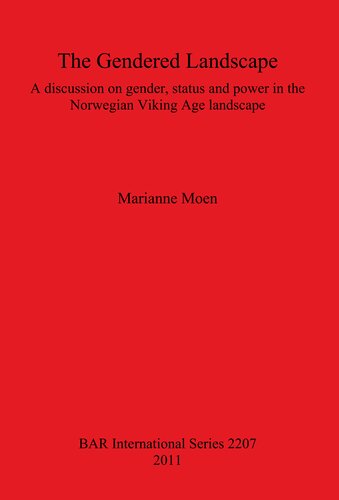

Most ebook files are in PDF format, so you can easily read them using various software such as Foxit Reader or directly on the Google Chrome browser.
Some ebook files are released by publishers in other formats such as .awz, .mobi, .epub, .fb2, etc. You may need to install specific software to read these formats on mobile/PC, such as Calibre.
Please read the tutorial at this link: https://ebookbell.com/faq
We offer FREE conversion to the popular formats you request; however, this may take some time. Therefore, right after payment, please email us, and we will try to provide the service as quickly as possible.
For some exceptional file formats or broken links (if any), please refrain from opening any disputes. Instead, email us first, and we will try to assist within a maximum of 6 hours.
EbookBell Team

4.4
12 reviewsThis study is the result of a long standing interest by the author in the expression of social identities of the past, perhaps more specifically, social identities as translated through gender, and their resulting cultural expressions and material remains. The overarching subject explored is the gender structures prevalent in the Late Iron Age in the county of Vestfold, Norway. The Scandinavian Late Iron Age, popularly known as the Viking Age, is often represented as deeply and inherently male, with male aggressiveness as the ideal presented to the public, leaving little room for alternative gender roles in the popular imagination. Gender is one of the basic structuring principles of most societies, and as a social category it must be understood in order to grasp the cultural complexity of a society. The author will attempts to show that the gender roles of the Viking Age are perhaps often interpreted and represented too simplistically, and that popular stereotypes fail to take into account the complex multitude of categories, variations and negotiations which one ought to expect from the interpretation of gender. The author's basic proposition is that if the gender roles of the Viking Age were more complex than is often believed, this may be reflected in the mortuary landscape and in the choice of location for burials. To approach this subject, the author looks at the relative positioning of female graves in the mortuary landscape of the Viking Age, and focuses on two different sites in the county now known as Vestfold: Oseberg and Kaupang.